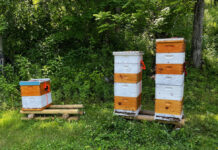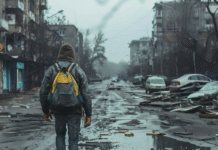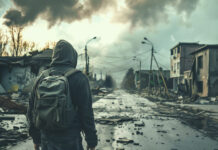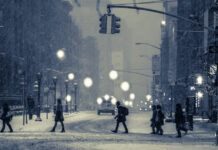Our hearts go out to the folks in Texas who suffered through the brutal cold spell this past week, many with no electricity or heat. A surprise ice storm or sub-zero temperatures are bad enough when all your utilities work, but the failure of the Texas Power Grid resulted in dozens of deaths and likely billions of dollars in damage.
Texas has a population of close to 30 million. At least half of them suffered power outages in this past week. About a third have been warned to boil their water. Grocery stores ran out of food and had trouble getting resupplied. Many restaurants are closed because they have run out of food and/or don’t have clean water. At the peak, Walmart closed more than 500 stores, most of them in Texas.
As unfortunate as this event has been, it provides lessons we can all benefit from. So, let’s take a look at that disaster and some of the things you can learn from it. Hopefully, these suggestions can help you avoid a similar situation in the future. If you took different lessons from it, post them in the comments below.
Know How to Turn Off your Water
Prepper or not, you should be able to turn off the water supply to your water. If you have a house, there is usually a valve with a knob or a lever where the water enters your house. Shutting this off will prevent water from entering the building. If you have an apartment, it may be in the utility area.
Why do houses have water shut offs? To shut it off when there is a leak and so plumbers can fix pipes and fixtures without water shooting out everywhere.
Here are the steps I would take in a similar situation where freezing was an issue:
- Fill up water bottles, pots and pans, camping containers, and bathtub so we would have drinking water for a few days.
- Shut off the house water and the main valve.
- Open a couple faucets in the house, including a one at the highest and one at the lowest points in the house. This will help drain all the water from your pipes.
- Ensure water has drained water from the following appliances and their hoses: washing machine, refrigerator with water dispensers and ice makers, dishwashers, and anything else that uses water.
- If a tankless hot water heater is present, shut it down (they are usually natural gas, propane, or electric) and drain any water from it.
- As the temperatures fell, I would monitor the water in toilet bowls and the hot water heater (if it has a tank) and drain them if I suspected they would freeze.
In addition to knowing how to turn off the water, if you have natural gas or propane you should know where their shut-off valves are and how to operate them. Turning them off can prevent a fire in the event of an earthquake or other disaster.
Have an Alternative Heat Source
You need to have a heat source that does not rely on electricity to ignite it, operate it, or blow air. For example, we have a fireplace insert that uses a blower. The fire will still burn when the power is off, but it will not produce much heat. We have a wood stove that is totally non-electric and is capable of warming the entire house.
Propane heaters are a suitable alternative, but you must be sure to get propane heater that is safe to store indoors, and you need plenty of fuel. If your house has a large tank out back, then you can probably hook up to it. Otherwise, you should store several grill-sized tanks.
A kerosene heater is another good alternative. Get one that is approved for indoor use and be warned that it may make your house smell for a little while, but that is a small price to pay.
When preppers talk about food, water and shelter, shelter includes heat. It includes blankets and sleeping bags. It includes warm clothing, wool socks, and footwear.
Size Your Generator Correctly
If you have a generator, make sure it is large enough to run your furnace and store plenty of fuel.
I know someone who has a whole-house generator that runs on propane. When a bad ice storm is expected, he calls the propane company and has them top off his tank. Unless you are attached to a natural gas main, I would recommend that you run the generator a few hours on, a few hours off rather than 24×7 to conserve fuel.
Keep your Vehicle’s Tank Full
It is common advice to fill your car or truck’s fuel tank when it gets to half or lower. Now you know why. Many people use their vehicles to keep warm, to charge their phones, to listen to local news broadcasts and probably to bug out.
We always keep a few spare cans of fuel on hand and rotate them a couple times a year to ensure the gas is fresh. We can use this gas in our generator or to refill our car.
If foul weather is predicted, fill your tank.
Have a Bug Out plan
You don’t have to have a retreat to have a place to bug out. All you need are friends or family within a couple hundred miles that you can bug out to. In Texas, some communities had outages but others didn’t. If it’s so cold it’s dangerous, follow our first suggestion of turning off your water, grab your bags and blankets, and bug out to somewhere with heat.
Many Texans are in the path of hurricanes. They should have bugout plans for that. Why not use them in the snow, too?
Be Prepared for the Unexpected
When they call something a 100-year event, that doesn’t mean it won’t happen. We’ve seen 100-year floods, 500-year floods, 100-year blizzards and other weather phenomenon. High and low temperature records are set some where every single year.
So if you live in rainy, cloudy Seattle or London, stock some sunscreen, just in case you have a few sunny, hot days in the middle of summer. If you live in a warm climate, be prepared for the occasional snow or ice.
Four Wheel Drive Vehicles Have Merit
I have not been without a four-wheel-drive vehicle for the last 23 years. On multiple occasions, 4WD has helped me roll by people stuck on the side of the road due to snow. (In fact, on two occasions I gave strangers rides after they had to abandon their cars.)
Four wheel drive will not help you stop on ice, but it will help you go in snow and ice. Sometimes, that can be enough. 4WD can help you drive out of a bad situation before it gets worse. It can help you complete your bug out.
Don’t Leave Your Cupboard Bare
This goes for food and water. Store some water and store as much food as you can afford. Many people think of 5-gallon pails of beans and rice, but you can store grocery store foods as well, you just have to rotate them more often. Peanut butter and crackers, breakfast and other bars, nuts and dried fruits, and similar items that can be eaten without preparation are helpful. Canned foods that are heat-and-eat are useful. You want something hot and filling you can make in one pot over a fire or simple burner. And in the winter, hot chocolate is always nice, too.
Choose Fixed Costs over Variable
Many customers of Griddy, a company that sells electricity to consumers at wholesale cost, saw their electric bill shoot up to thousands and in some cases tens of thousands of dollars. All the money they had saved over the years when up in a puff of smoke. Personally, I like to lock in prices when I can. It allows me to budget and plan. It also helps put off the impact of inflation.
Using Griddy was a bet that wholesale prices would stay low. It turned out to be a losing bet.
Don’t Expect Someone to Save You
In a disaster or emergency, you cannot expect someone else to save you. You have to be able to save yourself and your family.
If you wait for the government, the power company, or someone else to save you, you might be waiting a long time. Don’t expect calls to toll-free numbers to resolve the problem. Break out of your normalcy bias and take action yourself. Before your house freezes.
Have a Plan B
Too many people go through life without thinking what they would do if the SHTF. This week in Texas, People were caught unprepared, unaware, and did not know how to react. You need to think of worst-case scenarios before they happen and plan your response while you have a clear head and plenty of time.
If you are a farmer, think about alternative ways to get fresh water and food to your livestock. Think about where you would go and how if you needed o bug out. Consider how you would recharge your phone if the power was out. Figure out where you will pee before the time comes and you need to.
If you raise chickens in your backyard, think about what you can do if your chicken coop gets too cold. Can you wrap it in a tarp? Can you cover the screen windows with a board or shower curtain to cut down on the wind? How can you get them fresh water if their water freezes?
This gets back to the basics of prepping: Prepare for the worst and hope for the best.







